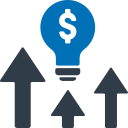Career development workshops and strategies play a crucial role in empowering individuals to reach their professional potential. These programs provide guidance, skill enhancement, and actionable plans to help people navigate changing job markets, discover new avenues, and overcome career challenges. Whether you are entering the workforce, considering a transition, or aiming for leadership, structured workshops and thoughtful strategies can make a meaningful difference in your career trajectory.
Understanding Career Development
01
The Importance of Self-Assessment
Self-assessment allows individuals to gain insights into their strengths, values, interests, and skills, which are vital for making informed career decisions. By understanding personal attributes, professionals can align their aspirations with suitable career paths, increasing satisfaction and long-term success. Self-assessment tools, when integrated into workshops, encourage honest reflection, helping participants identify areas for growth and development.
02
Setting Realistic Career Goals
Effective career development relies on setting achievable, clear goals that serve as a roadmap. Goal-setting strategies taught in workshops guide participants in defining both short-term and long-term objectives. Through structured exercises, individuals learn how to break down ambitions into attainable steps, improving motivation and focus on continuous improvement within their chosen fields.
03
Navigating Career Transitions
Changing careers or roles can be daunting, but understanding the essentials of successful transitions makes the process manageable. Workshops dedicated to transitions address issues such as adapting to new industries, upskilling, and networking. These sessions equip participants with confidence and adaptability, empowering them to embrace change and pursue fulfilling career growth opportunities.
Essential Skills for Career Growth

Strong communication skills are crucial for career advancement, as they influence interactions with colleagues, supervisors, and clients. Workshops often include practical exercises on verbal, nonverbal, and written communication, teaching participants how to express ideas clearly and persuasively. Mastering these abilities leads to more effective collaboration, increased leadership potential, and greater confidence in all workplace situations.
Effective Networking Strategies
Building Authentic Connections
Establishing genuine relationships within your industry opens doors to collaboration, information sharing, and valuable guidance. Career workshops educate participants on effective approaches to professional outreach, emphasizing authenticity and mutual benefit. Practicing these strategies ensures that connections are meaningful, which increases visibility and trust in the professional landscape.
Leveraging Social Media Platforms
In the digital age, social media has transformed networking. Career workshops guide individuals in crafting strong online profiles, engaging in industry-focused discussions, and leveraging platforms like LinkedIn for career growth. Participants learn how to use social media to showcase expertise, expand reach, and connect with peers, influencers, and potential employers globally.
Maintaining Professional Relationships
Building a network is only the beginning; maintaining those relationships is equally important. Workshops provide strategies for ongoing engagement, including thoughtful follow-ups, sharing resources, and offering support. Cultivating a dynamic network helps professionals stay top-of-mind for new opportunities and gain access to timely insights or mentorship.
Resume and Cover Letter Optimization
01
A well-crafted resume succinctly demonstrates qualifications, experiences, and achievements tailored to specific job opportunities. In career development sessions, participants learn how to structure resumes, use powerful language, and select key accomplishments that resonate with employers. These hands-on activities help transform resumes from generic summaries to impactful marketing tools.
02
Cover letters provide a unique space to express enthusiasm and detail how your skills align with a position. Workshops teach techniques to personalize cover letters while showcasing problem-solving abilities and relevant experiences. Participants are encouraged to move beyond templates, infusing their letters with personality and authentic connections to the employer’s needs.
03
Many promising candidates are overlooked due to easily avoidable mistakes in their application materials. Career development sessions address common pitfalls, such as generic content, poor formatting, and lack of quantifiable achievements. Insights from these workshops ensure applications stand out for the right reasons and reflect the candidate’s professionalism and attention to detail.
Interview Preparation Techniques
Mastering Different Interview Formats
Modern recruitment processes incorporate various interview formats: phone, video, group, and one-on-one. Workshops familiarize participants with each style, providing them with the skills and strategies to adapt. By practicing responses and learning about typical questions, applicants build confidence and learn to make positive impressions regardless of interview context.
Behavioral and Situational Questions
Behavioral and situational interview questions assess how candidates handle real-life scenarios. Career workshops introduce the STAR (Situation, Task, Action, Result) technique and other frameworks, enabling participants to structure their answers logically. By working through examples and role-playing, attendees gain proficiency in demonstrating their value to prospective employers through compelling narratives.
Managing Interview Anxiety
Preparation is essential, but so is managing nerves. Workshops address interview anxiety by providing mindfulness techniques, mock interviews, and self-assessment exercises. Through supportive environments, participants learn to reframe nervousness as excitement, transforming stress into performance-enhancing energy that leads to successful interview outcomes.
Previous
Next
Leveraging Mentorship and Coaching
Locating the right mentor requires an understanding of personal goals and the type of guidance needed. Career workshops provide actionable steps for identifying suitable mentors, crafting outreach messages, and establishing meaningful, mutually beneficial relationships. By learning how to engage with potential mentors, participants maximize the benefits of these connections.

Navigating Career Challenges
Overcoming Setbacks and Failures
Setbacks are inevitable, but how individuals respond to them shapes their future success. Workshops address the importance of resilience, reframing setbacks as learning experiences. Through storytelling, reflection, and techniques for bouncing back, attendees develop coping mechanisms and growth mindsets, enabling them to recover and thrive.

